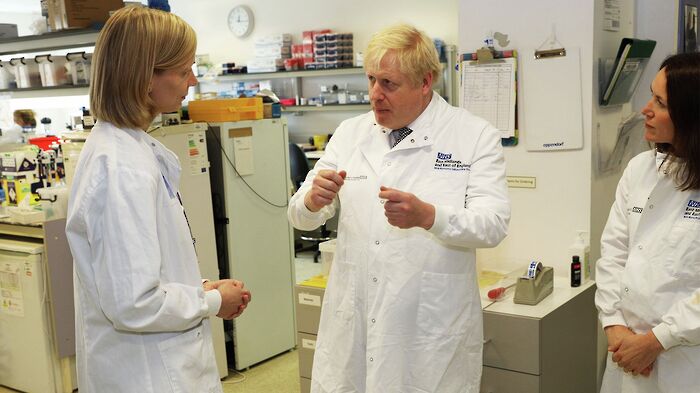Cambridgeshire politics: ‘Unite to Remain’ alliance and the potential loss of the student vote
“We are putting party politics aside in the interest of our country” says MP for South Cambridgeshire

Constituents from South Cambridgeshire will not have the option to vote for a Green Party candidate, as the Green candidate withdraws as part of the Unite to Remain alliance.
The alliance is a pact between three anti-Brexit parties, the Liberal Democrat Party, the Green party, and Plaid Cymru. It was formed with the sole purpose of winning seats and denying Boris Johnson an election win in December’s election.
As part of the pact, the parties will give voters “one remain choice” in seats across England and Wales meaning that in some seats candidates from each will stand aside.
Instrumental in brokering the deal was Heidi Allen, MP for South Cambridgeshire and chairwoman of Unite to Remain. Allen, whose constituency includes Homerton and Girton, plans to stand down at the election. Her seat will be part of the pact and consequently there will be no Green candidate running on 12th December, giving way to the Lib Dem candidate, Ian Sollom.
“We are putting party politics aside in the interest of our country and have cemented a cross-party arrangement whereby Remain-voting parties in England and Wales are working together to back one Remain candidate,” Allen commented.
Paying tribute to the alliance, Sollom commented on the “enormous” sacrifice made by the Green Party, saying that it was “an unprecedented agreement between parties and is just the sort of action that is needed to improve politics at this critical time.”
However, in response to the news, the Conservative candidate Anthony Browne said,“They are depriving voters of choice and showing their contempt for democracy. I think it’s a pity that their voters are being denied the choice of voting for who they want to vote for.”
“I’m confident we will win, but there’s no room for complacency and we have to fight.”
The Unite to Remain agreement also covers the South East Cambridgeshire, who will see the Liberal Democrat candidate fight for the seat.
The seat in South Cambridgeshire has been considered as a Conservative safe seat, with voters consistently voting in Conservative MPs since its creation in 1997. On the other hand, the Cambridge seat representing the central colleges has been mainly held by Labour since 1992, with the Daniel Zeichner as the current MP.
Before 1992, it was held predominantly by the Conservatives. The Higher Education Policy Institute (HEPI) in a recent blog post attributed this change to the student vote.
Under the 1969 Representation of the People Act, the voting age was reduced from 21 to 18, and, as a result, undergraduates were given the ability to vote at their term-time address at university shortly after. Since this move, the share of Conservative votes declined consistently from 1979-2005.
In the 2017 General Election Labour won 51.9% of the vote, giving them a 22.6% majority. The party with the second biggest vote were the Lib Dems with 29.3%. With the upcoming election on 12 December falling outside of term time, the question remains as to whether the potential loss of the student vote will impact Labour’s hold on the seat.
 News / Cambridge student numbers fall amid nationwide decline14 April 2025
News / Cambridge student numbers fall amid nationwide decline14 April 2025 Lifestyle / First year, take two: returning after intermission14 April 2025
Lifestyle / First year, take two: returning after intermission14 April 2025 News / First candidate to announce chancellorship bid pledges to tackle bullying 12 April 2025
News / First candidate to announce chancellorship bid pledges to tackle bullying 12 April 2025 News / Uni to ‘review’ tripos rankings and weekend lectures in undergrad teaching overhaul10 April 2025
News / Uni to ‘review’ tripos rankings and weekend lectures in undergrad teaching overhaul10 April 2025 Sport / Cambridge celebrate clean sweep at Boat Race 202514 April 2025
Sport / Cambridge celebrate clean sweep at Boat Race 202514 April 2025




